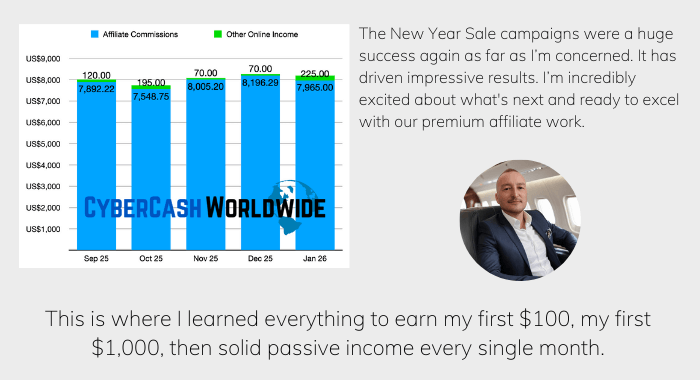Start blog, make money? If you prefer writing to speaking, if you're an introvert rather than an extrovert, if you want to share your opinions and passions with the world... Then yes, blogging is probably the best way to express yourself publicly. But you know by now that making money from a blog isn't something that happens overnight. It's not like you write a few posts, throw them online, and watch the cash roll in. Nope, it's far from that.
Building a blog that brings in money takes time - a lot of it. You're not just writing posts; you're building an entire platform from scratch.

Not Easy, Of Course Not.
Starting up is dead easy. You can get your website started in the next few minutes if you want. But you'll need to build it up, you're not going to make money so soon, but you will, believe me. Like anything else in the world, you need to learn the how-to's (the right how-to's) as you get along. But wait. I said in the beginning "If you prefer writing to speaking..."
Not For Everyone, Of Course Not.
Some people are better at verbal communication than written communication. Face-to-face, over the phone, live chat such as Skype. Some people are ONLY good at communicating verbally. It doesn't necessarily mean they're more suitable for vlogging on YouTube rather than writing blogs. Generally, extroverts often find it easier to digest information by talking themselves out, even though they know the answer. They prefer two-way communications rather than one-way broadcasts such as blogging and vlogging.
In my experience - in the past few years I've had a dozen people whom I communicated with on Skype and talked them through how to start a blog to make money because they requested so. They insisted they wouldn't understand text manuals or training, but they wanted me to show them step-by-step via webcam. None of them made it to publish more than a few blog posts. It might tell you something; if you don't like reading, you're unlikely to continue writing.
The Traffic Challenge
Here's a big hurdle - getting enough traffic. For a blog to make money, people need to read it, right? But getting readers isn't easy. You're competing with millions of other blogs out there.
And let's not forget about SEO. You need to know how to make your blog show up in search results. That alone is a whole different ball game.

Content Creation Is a Marathon
Now, about content creation. It's not just about writing something and calling it a day. Your content needs to be engaging, informative, and something people actually want to read. And you need a lot of it.
Constantly coming up with fresh, appealing content is a challenge. It's not just writing; it's research, editing, maybe adding images or videos - it's a lot.
Monetization Methods Aren't Always Straightforward
Then there's the part about actually making the money. There are a few ways to do this - ads, affiliate marketing, sponsored content, selling products or services.
But guess what? Each of these requires its own strategy and comes with its own set of challenges. For example, with ads, you need a ton of traffic to make decent money. Affiliate marketing? You have to find the right products, integrate them naturally into your content, and hope your readers are interested.
The Constant Need for Adaptation
The online world changes fast. What worked for monetizing a blog a year ago might not work today. New platforms emerge, algorithms change, and what audiences want evolves. Keeping up with these changes and adapting your blog accordingly can be exhausting. It's a never-ending learning process.
It's a Crowded Space
Lastly, let's not forget about competition. There are millions of blogs out there. Standing out in this crowded space is tough. You're not just competing with other bloggers but also big-name publishers and companies with hefty marketing budgets.
So, there you have it. Monetizing a blog is hard work. It's not just writing and posting; it's strategizing, marketing, constantly creating, and always learning. Sure, some people do make it, but it's a long, challenging road to get there.
The Overdone How-To Guide Epidemic
Let's be real for a moment. The internet is oversaturated with how-to guides. And as readers, we're getting pretty tired of seeing the same old, “been there, read that” kind of content. It's like bloggers are churning out common sense advice and dressing it up as groundbreaking wisdom. Let's talk about why this trend is, frankly, a bit tiresome.
Recycling the Obvious
It seems like every blog you visit these days is loaded with how-to guides that tell us things we already know. "How to Boil Water," "Tips for Tying Your Shoes" – okay, maybe not that basic, but you get the idea. It's a bunch of recycled, obvious advice. We're all for learning, but when the information is something that most of us have known since we were five, it's a snooze fest.
The "Groundbreaking" Illusion
You know the drill. You click on a guide thinking you'll find some incredible, life-altering advice, only to realize it's the same stuff you've heard a thousand times. It's like some bloggers think they've stumbled upon the Rosetta Stone of everyday life, but really, it's just another pebble on the beach. We get it, basic advice can be helpful, but dressing it up as something revolutionary is a bit much.

Quality Control
Injecting Your Personality
Injecting personality into AI-generated content is not impossible but hard, indeed. You program AI with a tone of your choice and style guidelines, and it can mimic a certain writing style. But you'll still have to change it all sentence by sentence.
For example, if a brand's voice is casual and humorous, the AI can be trained to use colloquial language, make light-hearted jokes, and maintain a friendly tone throughout its writing. But it still turns out to sound so generic.
Example: AI-Generated Content
Topic: How to Make a Smoothie
AI Output: "To make a smoothie, you will need some fruits, yogurt, and ice. Blend them together until smooth. Enjoy your drink."
Steps to Manually Correct and Enhance
Add a Personal Touch
- Before: "To make a smoothie, you will need some fruits, yogurt, and ice."
- After: "Grab your favorite fruits—think bananas, strawberries, or mangoes—a dollop of creamy yogurt, and a handful of ice cubes."
Inject Enthusiasm
- Before: "Blend them together until smooth."
- After: "Toss everything into your blender and watch the magic happen! Blend until you get that perfectly smooth, dreamy texture."
Include Fun Descriptions
- Before: "Enjoy your drink."
- After: "Pour your vibrant, delicious smoothie into a tall glass, pop in a colorful straw, and savor every refreshing sip!"
Revised Content
Revised Version:"Ready to whip up a delicious smoothie? Grab your favorite fruits—think bananas, strawberries, or mangoes—a dollop of creamy yogurt, and a handful of ice cubes. Toss everything into your blender and watch the magic happen! Blend until you get that perfectly smooth, dreamy texture. Pour your vibrant, delicious smoothie into a tall glass, pop in a colorful straw, and savor every refreshing sip!"
Practical Steps for Beginners
- Read the AI Content Carefully: Understand what the AI has written and identify where it feels flat or generic.
- Add Specific Details: Replace vague terms with more specific and vivid descriptions.
- Use Engaging Language: Change plain sentences into more exciting and engaging ones.
- Include Personal Touches: Add elements that reflect your personality or voice, such as humor, enthusiasm, or personal anecdotes.
Practical Tips:
- Be Descriptive: Use sensory words to describe the experience (e.g., "vibrant," "creamy," "refreshing").
- Show Enthusiasm: Use exclamation points and positive language to convey excitement.
- Make It Relatable: Add personal touches or relatable scenarios to connect with the reader.



Awesome advice, there are so many things you say that I can reference to! Thanks!
Thank you, I appreciate your comment!